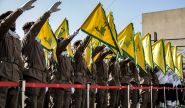
Hezbollah: Is the Company Joud Licensed by the Lebanese State?
This is Beirut 26/12 16:50

This is Beirut 26/12 16:50

This is Beirut 26/12 13:40

This is Beirut 25/12 10:30

This is Beirut 23/12 21:45

This is Beirut 23/12 19:15

This is Beirut 26/12 14:10

This is Beirut 26/12 10:35

This is Beirut 26/12 10:00

This is Beirut 25/12 18:00

This is Beirut 25/12 15:30
Rayan Chami 26/12 17:10
Hala Abdallah 23/12 17:00
Lea Mehanna 21/12 17:00
Rayan Chami 20/12 00:18

This is Beirut 21/12 15:05

This is Beirut 21/12 12:05

Eleonore Stephan for Huna Lubnan 21/12 09:05

This is Beirut 20/12 18:05

This is Beirut 20/12 16:05

David Sahyoun 17/12 18:00

This is Beirut 17/12 14:15

This is Beirut 17/12 10:30

This is Beirut 15/12 12:25

This is Beirut 15/12 09:05

Makram Haddad 19/12 08:40

Makram Haddad 18/12 08:50

Makram Haddad 17/12 11:30

Makram Haddad 16/12 09:30

Makram Haddad 12/12 11:10

Bélinda Ibrahim 17/12 11:00

Makram Haddad 17/12 08:50

Bélinda Ibrahim 11/12 10:30

Bélinda Ibrahim 10/12 12:00

Bélinda Ibrahim 04/12 15:05